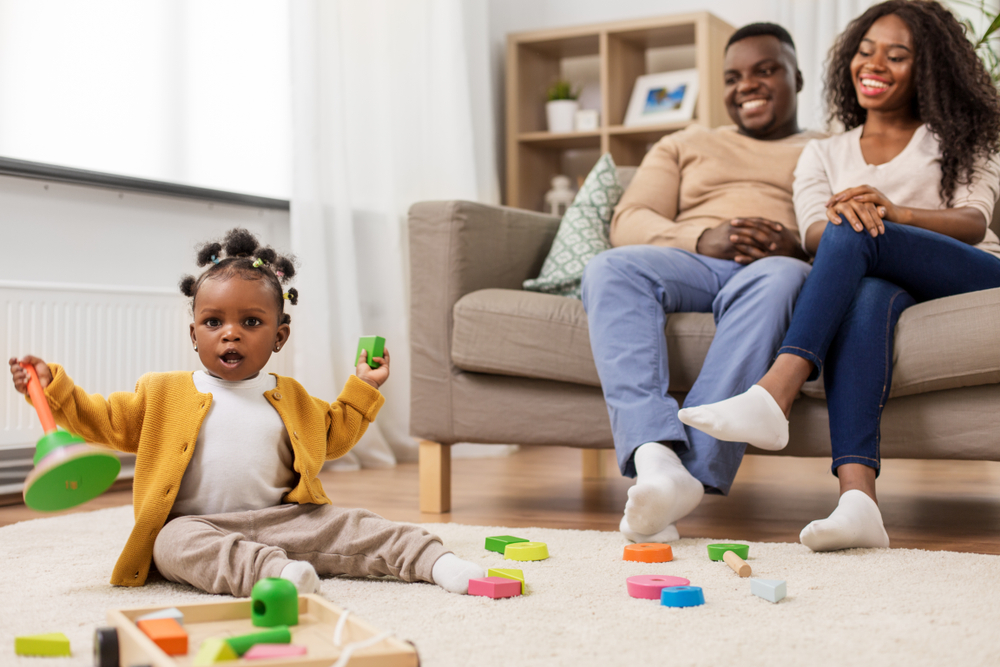Reading readiness Normal Worksheets for Ages 3-9
6 filtered results
-
From - To
Unlock your child’s potential with our Reading Readiness Normal Worksheets for Ages 3-9. These expertly designed worksheets from Kids Academy aim to nurture foundational reading skills, ensuring your child develops a love for reading early on. Engaging activities focused on letter recognition, phonics, vocabulary, and comprehension cater to diverse learning styles. Perfect for home or classroom use, our worksheets help young learners build confidence and achieve academic milestones while having fun. Accessible and printable, give your child the tools they need for a successful reading journey. Explore our collection today to promote effective and enjoyable learning.
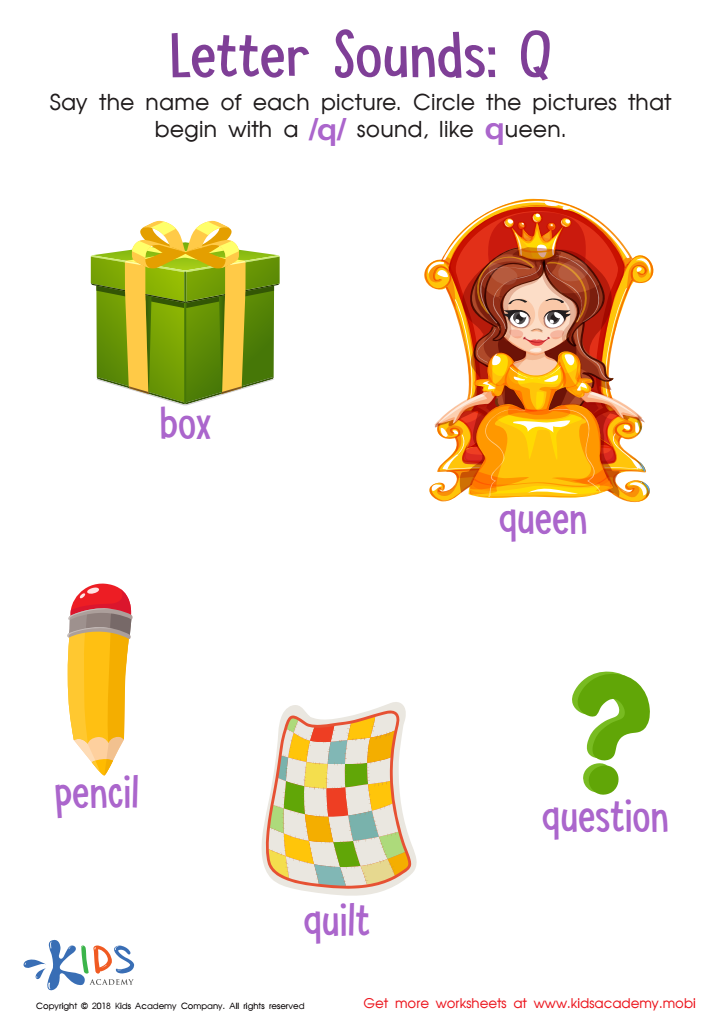

Letter Q Sounds Worksheet
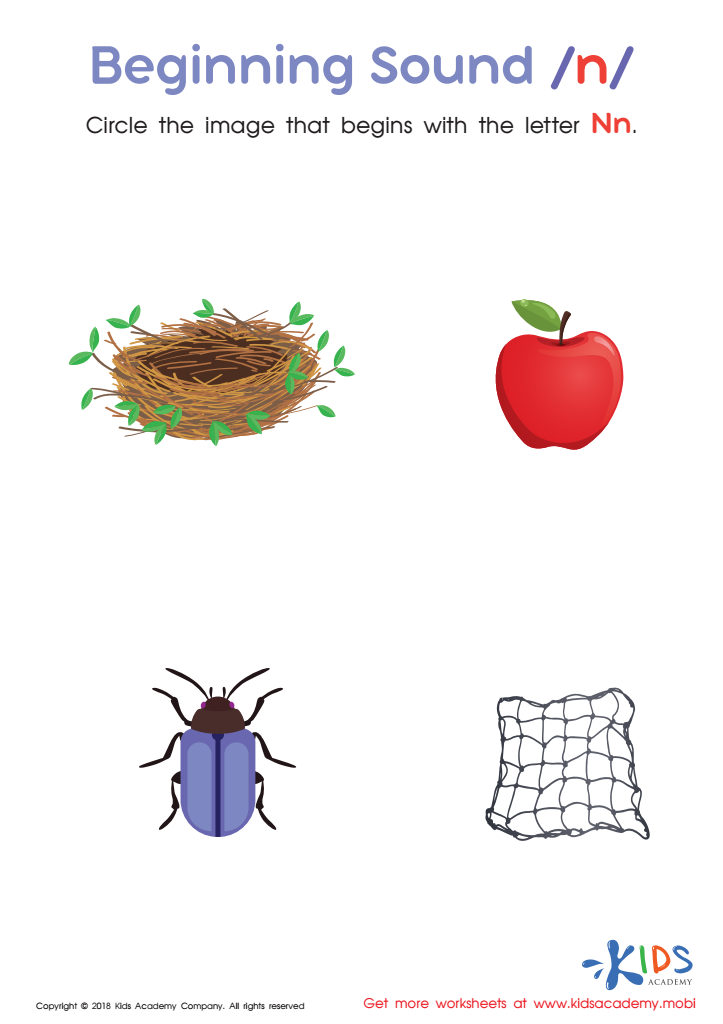

Beginning Sound «n» Worksheet
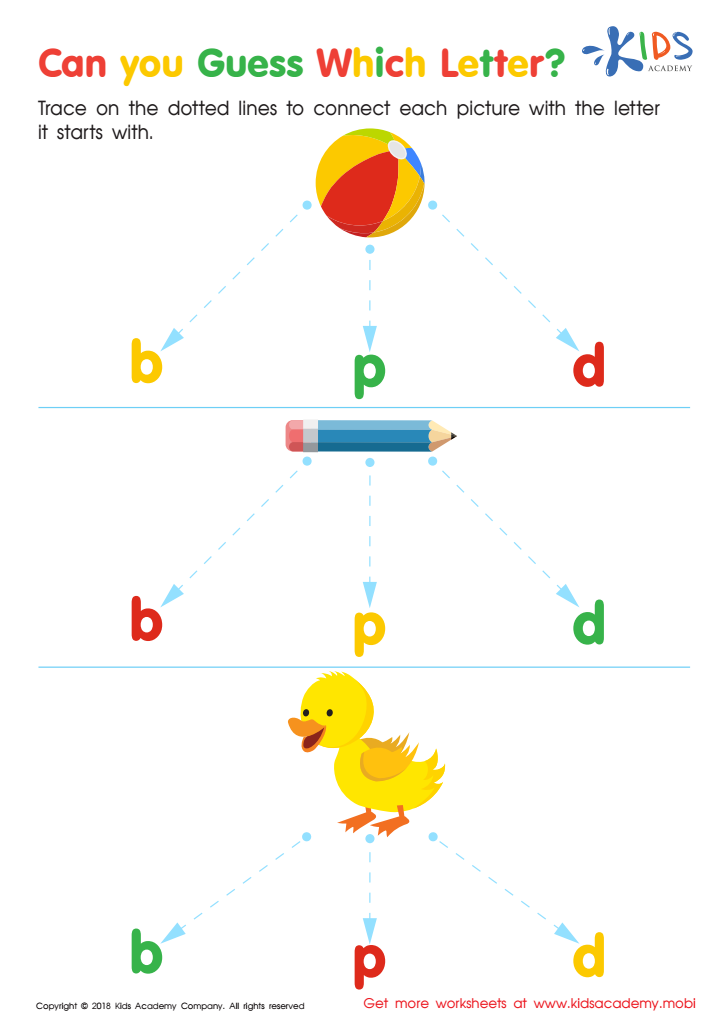

Can you Guess Which Letter? Worksheet


Phonological Awareness: Assessment 1 Worksheet
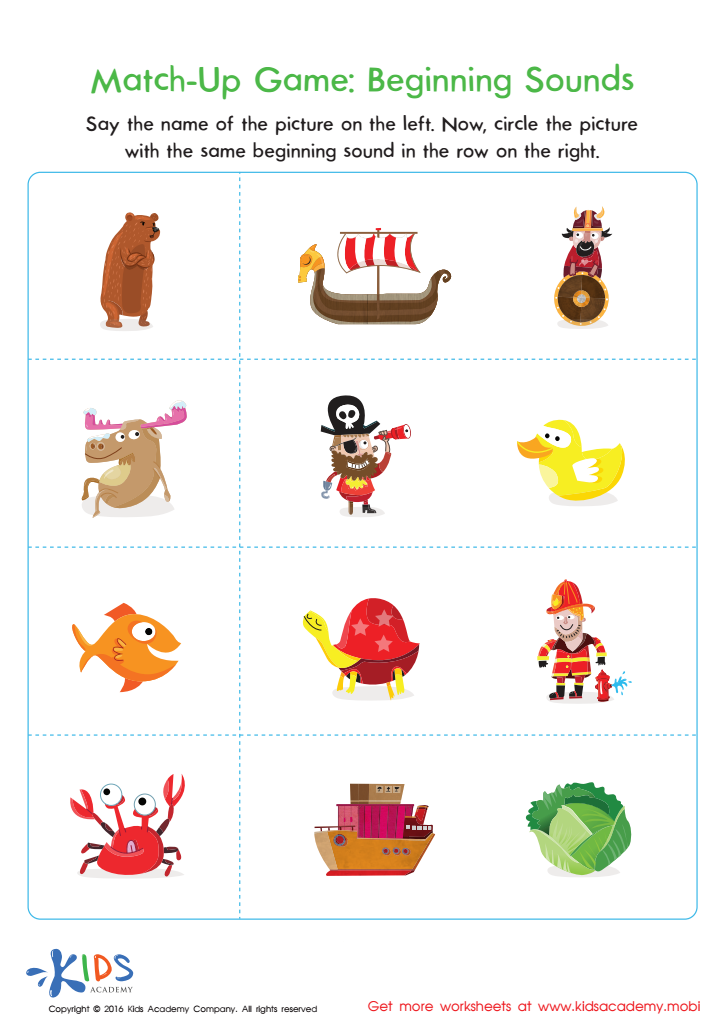

Match–Up Game: Beginning Sounds Worksheet
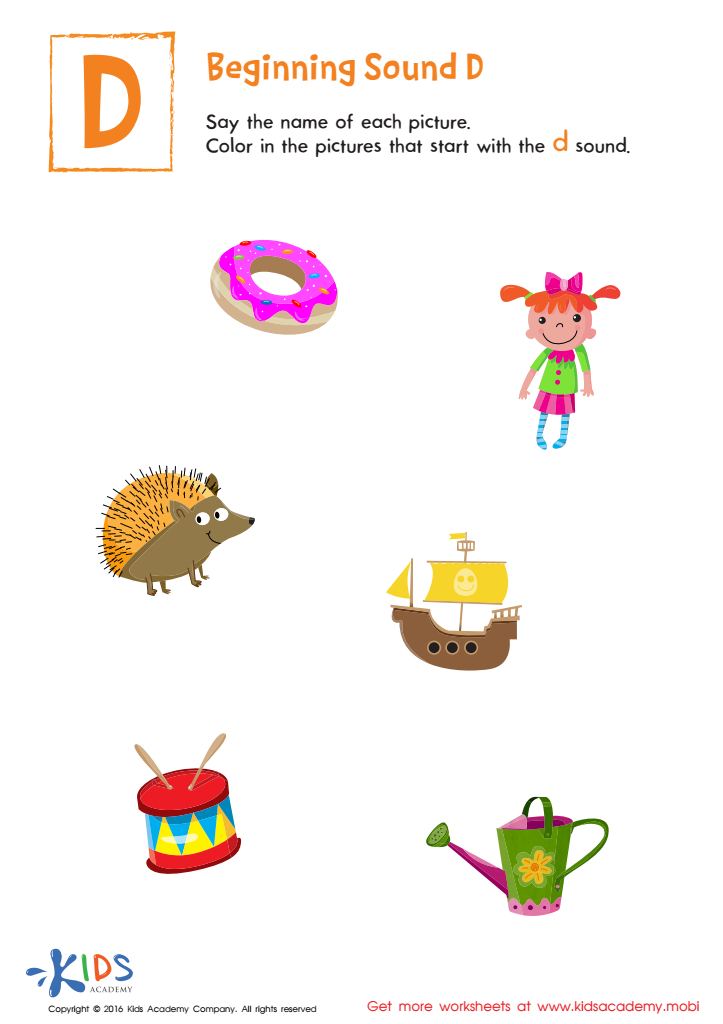

Beginning Sound D Worksheet
Reading readiness is a foundational aspect of a child’s early education that significantly influences future learning outcomes. For ages 3-9, this period is critical as neural pathways in the brain are highly adaptable, making it the optimal time for developing essential language and cognitive skills. For parents and teachers, fostering reading readiness supports a child's academic success and instills a lifelong love of learning.
At this age, children are naturally curious and absorb information rapidly. Reading readiness programs introduce them to vocabulary, phonics, and comprehension strategies, helping them understand the relationship between letters and sounds. This lays the groundwork for fluent reading and effective communication skills. Structured exposure to literature also enhances children’s ability to concentrate, builds their knowledge base, and nurtures creativity and imagination.
Moreover, early reading proficiency is closely linked to academic confidence and motivation. Children who struggle with reading often face academic challenges in other subjects, leading to frustration and a potential disinterest in school. Therefore, early intervention ensures that children develop strong literacy skills and provides a gateway to academic achievements.
By prioritizing reading readiness, parents and teachers equip children with critical skills needed for their educational journey and beyond. It’s an investment that pays long-term dividends in a child’s intellectual and emotional development.
 Assign to My Students
Assign to My Students





